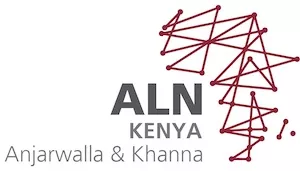The COVID-19 pandemic and the ensuing economic crisis has caused significant financial distress to many businesses in Kenya and across the world. Euler Hermes,1 which maintains the Global Insolvency Index, predicts that the pandemic is creating an "insolvency time bomb" and estimates that global business insolvencies are set to increase by more than 35% by 2021.2
Statistics from the office of the Official Receiver in Kenya do not yet indicate a significant increase in corporate insolvency filings over the pandemic period. Industry analysts attribute this to the government interventions aimed at cushioning businesses from the worst effects of the pandemic including measures such as the restructuring of loan portfolios and debt moratoriums.
As the government and banks continue to phase out the relief measures, and as the country moves to a typically contentious pre-election period, we should brace ourselves for a flood of insolvencies in the Kenyan market. This reality is particularly relevant for directors who need to be acutely aware of their legal duties and the heightened potential for liability.
This article illuminates some key issues that directors of Kenyan companies should be aware of:
Relevant Directors' Duties
As the 33rd President of the United States, Harry S. Truman was responsible for decisions that shaped the arc of human history including the atomic bombings that ended World War II, Truman famously kept a sign with the phrase "the buck stops here" at his desk in the Oval Office to signify the President's solemn duty to make decisions necessary for the success of the American public.
Similarly, the buck stops with directors who are largely responsible for charting a successful course for the business. In law, this principle is codified through a series of statutory and fiduciary duties that directors owe the company. Directors' duties have often been overlooked as vague and academic but are receiving renewed attention in light of the COVID-19 pandemic.
Perhaps the overarching duty of a company's directors is the duty to promote the success of the company. Directors are required to act in good faith and in ways that promote the company's success for the benefit of its members. In doing so, directors must have regard to:
- the likely consequences of their decisions in the long term;
- the interests of the company's employees;
- the need to develop the company's business relationships with suppliers, customers and others; and
- the impact of the operations of the company on the community and the environment.
In exercising this duty, directors have to act pragmatically and not with detached altruism.
It is critical for directors to realise that in an insolvency scenario, the duty to promote the success of the company gradually shifts to a duty to act in the best interests of the company's creditors. When facing a solvency crisis, directors should therefore be careful to deliberately protect the value of the company's assets and minimise losses to creditors as far as possible.
Directors also have the duty to exercise reasonable care, skill and diligence in carrying out their functions. If a director has specialist knowledge or skill that is of a higher standard, then the director will be judged against that specialist knowledge.
As part of a recent official inquiry into state capture in South Africa, Yakhe Kwinana, a director at South African Airways and a chartered accountant by profession, was called to explain why she approached her duties as a director with a lax attitude. This was evident through actions such as signing contracts worth billions without reading the relevant documents. Interestingly, when Ms. Kwinana was informed that she ought to have known better as she exercised her duties, she expressed her wish to be judged as a "person and not an accountant".3
Such conduct falls short of the duty to exercise reasonable care, skill, and diligence especially for a qualified professional.
In addition to the above, directors are required to act within their powers and under the company's memorandum and articles of association. Directors must also act independently without subordinating their powers to the will of others, whether by delegation or otherwise unless authorised by or under its constitutional documents to do so. Finally, directors are required to avoid situations where there is a real or apparent conflict between their duties to the company and the directors' personal interest.
It is important to note that a director in breach will be personally liable to the company and, in addition, is liable to repay the company for any loss incurred. Personal assets may also be attached if a finding of liability is made by the relevant court.
Potential Directors' Liabilities in Insolvency
There are several offences that a director may potentially be liable for in the event the company is liquidated. While the law does not expressly state at what point directors should cease trading and what steps they need to take to avoid liability, general standards as confirmed by case law are that the directors ought to take every step to minimise the potential loss to creditors. Failure to do so can expose the directors to claims for wrongful trading and/or fraudulent trading.
Wrongful trading is the first area of potential liability which is getting renewed prominence as the pandemic continues to loom over our economy. Under Kenya's insolvency regime, once a company's directors conclude (or should have concluded) that there is no reasonable prospect of the company avoiding insolvent liquidation, they have a duty to take every step which a reasonably diligent person would take to minimise potential loss to the company's creditors. The court may also disqualify the relevant director from being or acting as a director of a company or a limited liability partnership in Kenya for any period not exceeding fifteen (15) years.
If the directors continue trading and the company subsequently falls into liquidation the insolvency practitioner can seek an order from the court to make the directors personally responsible to pay the company's debts.
As far as we are aware, there is no Kenyan case dealing with the quantum of a directors' liability. In the United Kingdom, which can be looked at for guidance since our Insolvency Act is substantially modelled on the equivalent statute in England, the rule on wrongful trading was suspended until 30 September 2020 in light of the pandemic. Recognising the danger company directors face, stakeholders have successfully lobbied the UK Government to extend the suspension of wrongful trading provisions until 30 April 2021.4
Through its lobbying efforts, Anjarwalla & Khanna has also urged the Kenyan government to consider a similar suspension of wrongful trading provisions in Kenya.
The risk related to wrongful trading that directors face is that of fraudulent trading. Fraudulent trading applies if, during a liquidation, it appears that any business of the company has been carried on with the intent to defraud creditors of the company or any other person. This sets a higher bar as the complainant has to prove fraudulent intent.
A director guilty of fraudulent trading will be personally liable for the company's debts. Fraudulent trading is also a criminal offence under the Companies Act and a person found guilty is liable on conviction to imprisonment for a term not exceeding 10 years or a fine not exceeding KES 10 million (approx. USD 91,000) or to both.
Practical Steps That the Board Can Take
According to Kenya's insolvency laws, a director may avoid liability for wrongful trading if he or she can prove that reasonable steps were taken to avoid potential losses to the financially distressed company's creditors. Therefore, the best way directors can respond to a financial crisis, and minimise the risk of personal liability, is to double down on tried and tested principles of sound corporate governance. For example, directors should hold regular board meetings and record the company's commercial decisions in full in the minutes. Directors should also ensure that there are defined roles for each director regarding the financial crisis facing the company.
In addition, the directors should also review material documentation and in particular provisions such as financial covenants, material adverse change, disclosure obligations, and termination in the event of the company's insolvency and monitor compliance with such contractual provisions. Directors should monitor the liquidity and profitability of the company and take immediate legal and financial action as soon as they are aware that there is no reasonable prospect of avoiding insolvent liquidation.
When in doubt, directors should seek appropriate professional advice from their appointed legal, regulatory, and tax advisors. Directors should also seek professional advice when considering resignation, as resignation does not automatically extinguish personal liability.
Conclusion
As COVID-19 related disruptions place unprecedented stress on our health, livelihoods and general way of life, directors in struggling businesses will need to stop looking at the proverbial tree and focus on the forest. While the temptation to be bogged down in the day-to-day details of ensuring a struggling business recovers is understandable, directors need to be acutely aware of the bigger picture.
This calls for balancing the determination to chart a safe path through the whirlwinds of the pandemic with the reality that each director's conduct needs to be unimpeachable in the event the business enters an insolvent situation. It also calls for a clear understanding of the duties that a director bears and the liability he/she may face.
Footnotes
1. https://www.eulerhermes.com/en_global/news-insights/economic-insights/Calm-before-the-storm-Covid19-and-the-business-insolvency-time-bomb.html
2. https://www.eulerhermes.com/en_global/news-insights/economic-insights/Calm-before-the-storm-Covid19-and-the-business-insolvency-time-bomb.html
3. https://www.businesslive.co.za/bd/opinion/2020-11-10-yakhe-kwinana-was-required-to-show-more-than-minimum-care-skill-and-diligence/
4. From 26 November 2020 until 30 April 2021.
The content of this article is intended to provide a general guide to the subject matter. Specialist advice should be sought about your specific circumstances.

